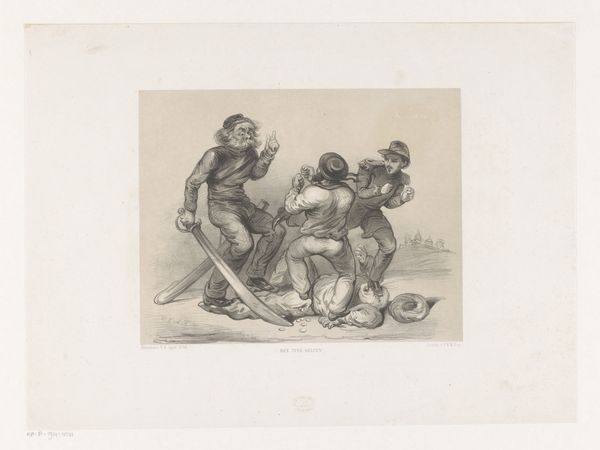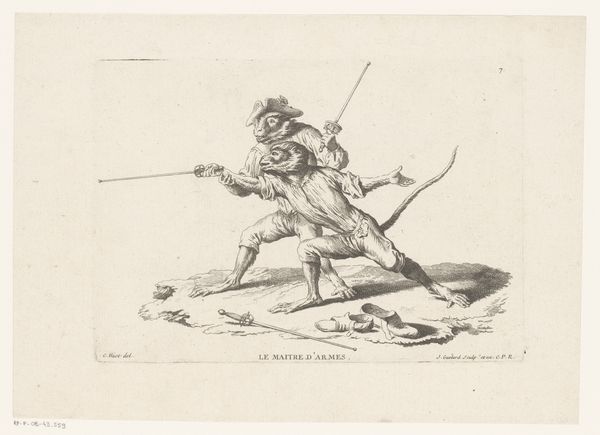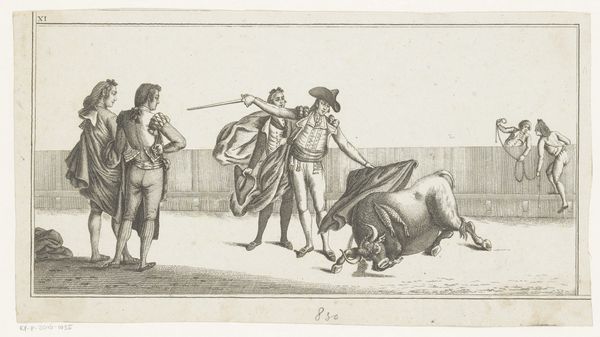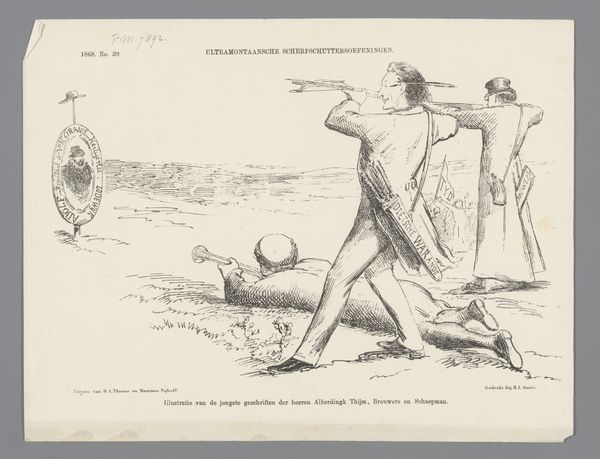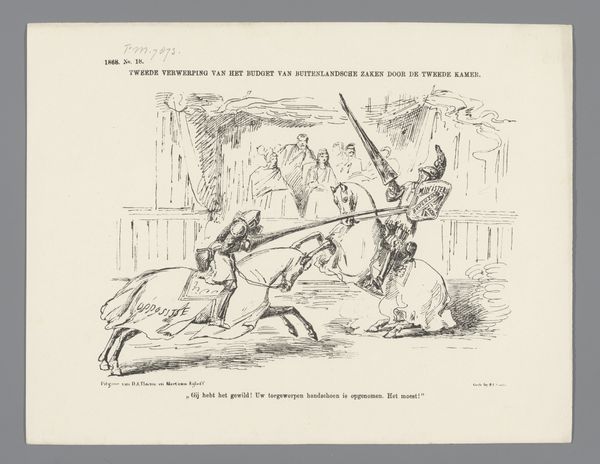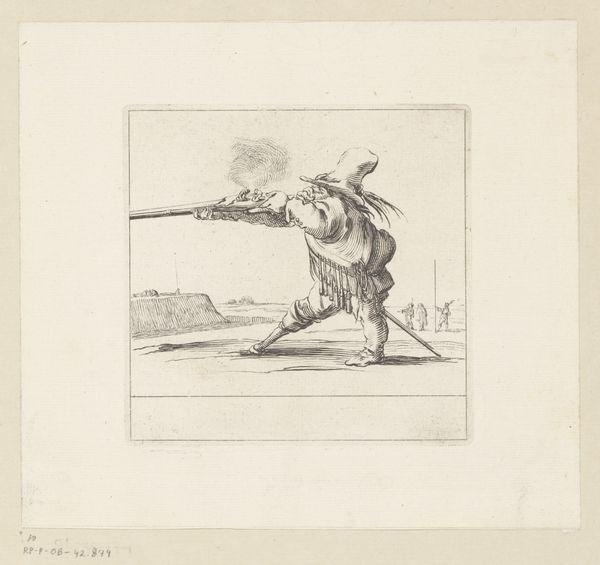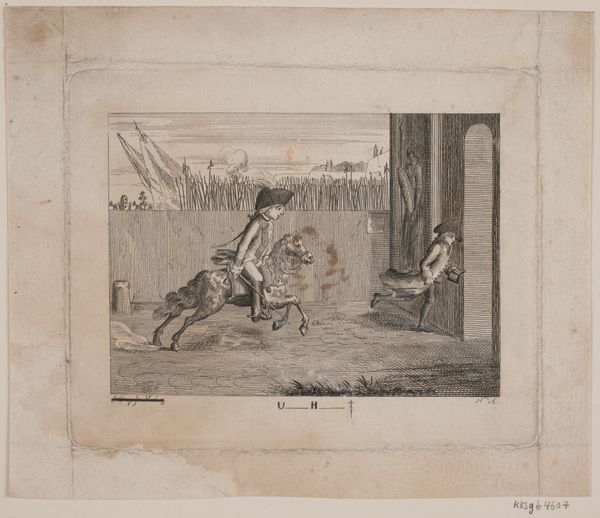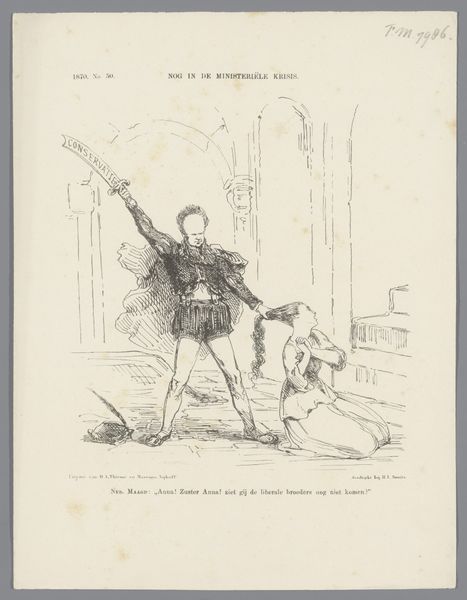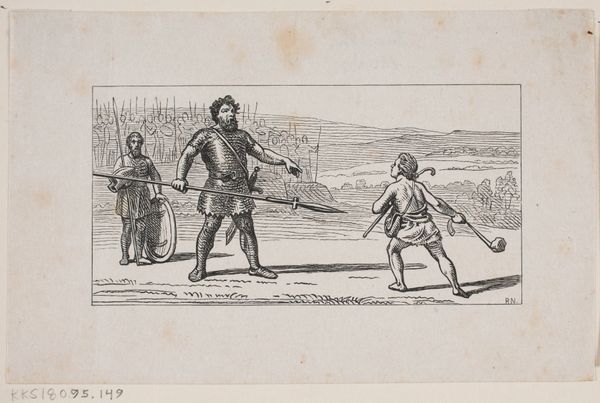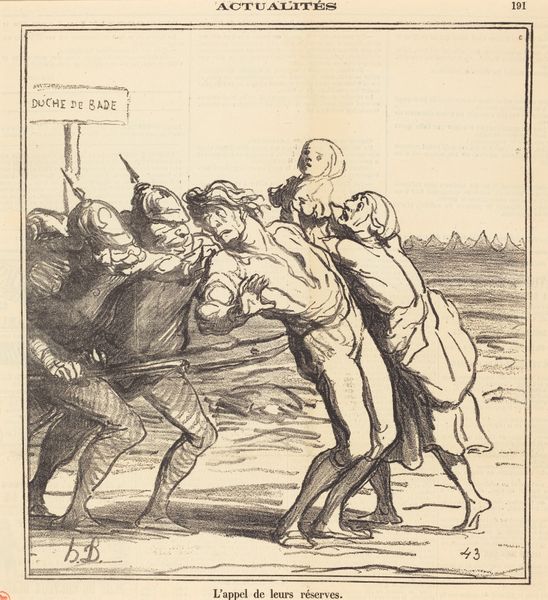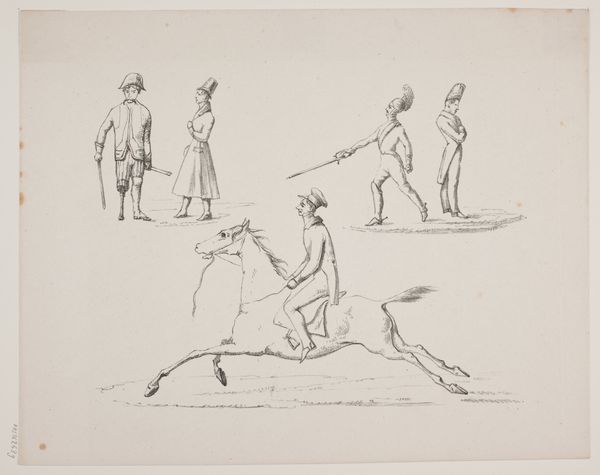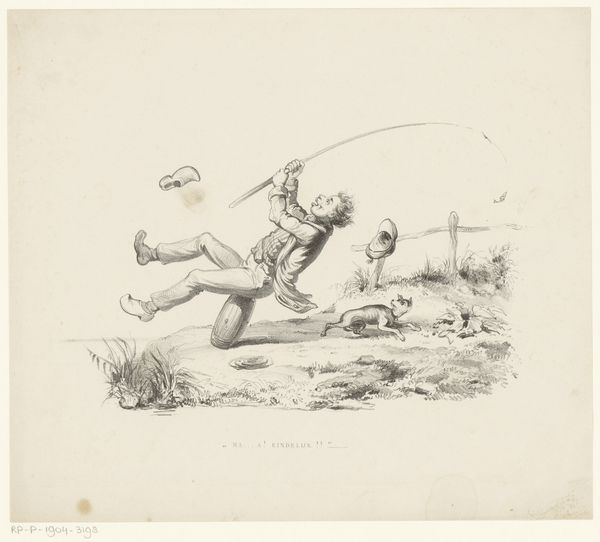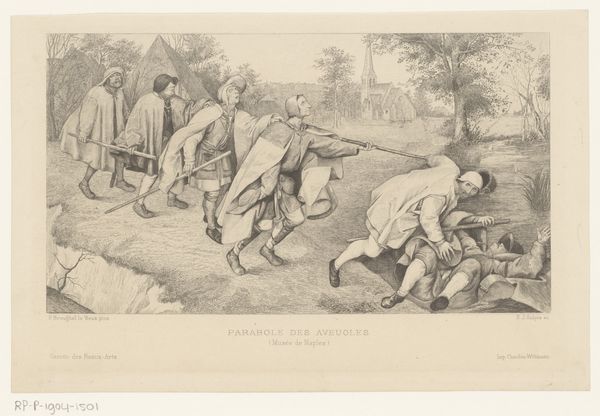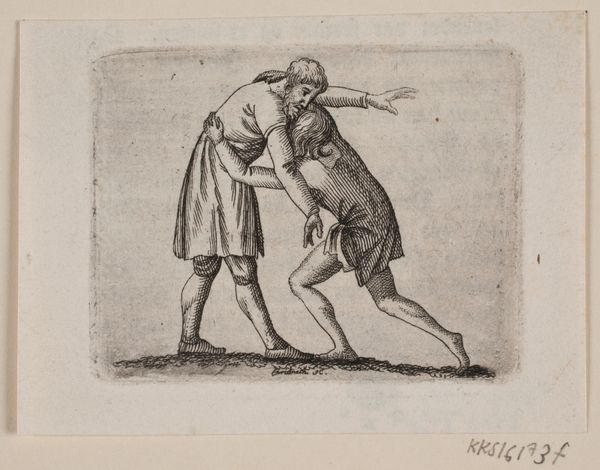
Dimensions: height 230 mm, width 264 mm
Copyright: Rijks Museum: Open Domain
This drawing by Alexander Ver Huell, made in the 19th century, portrays a fisherman who has caught not a fish, but a man. The captured man, suspended mid-air, becomes a grotesque parody of a successful catch, a symbol ripe with social commentary. The act of fishing itself, traditionally a pursuit of patience and sustenance, is here twisted into an aggressive display of power. This imagery echoes across time, recalling ancient myths where gods and heroes "fish" for mortals, wielding fate with a celestial rod. Observe the fisherman's confident stance, the rod held high like a scepter. This posture mirrors that of triumphant warriors in classical friezes, yet here, the victory is hollow, the prize a fellow human. The fear and shock contorting the caught man’s face, speak to a primal unease, evoking feelings of vulnerability. Such images persist through art history, from medieval depictions of souls ensnared by demons to modern anxieties about social manipulation. The symbol of capture transcends its immediate context, evolving to reflect ever-present fears and power dynamics.
Comments
No comments
Be the first to comment and join the conversation on the ultimate creative platform.
